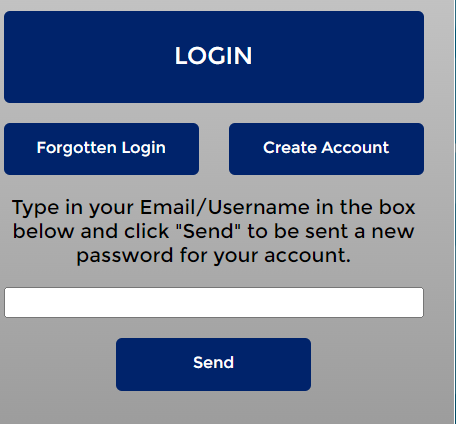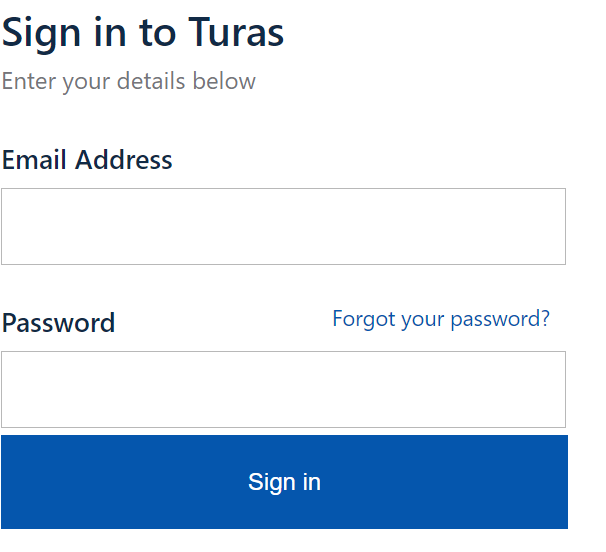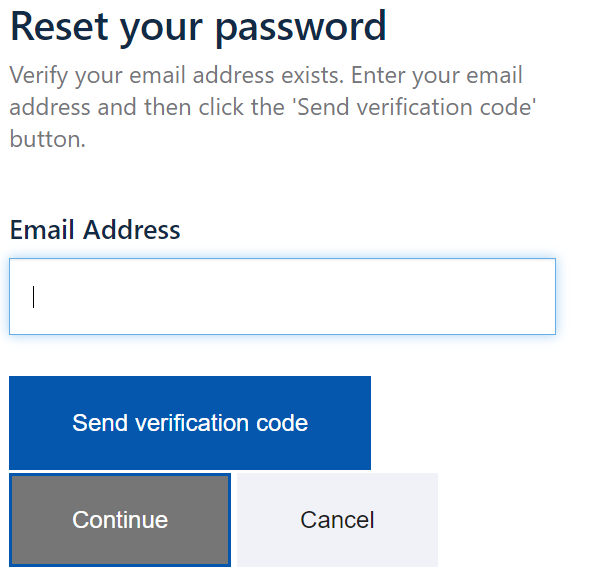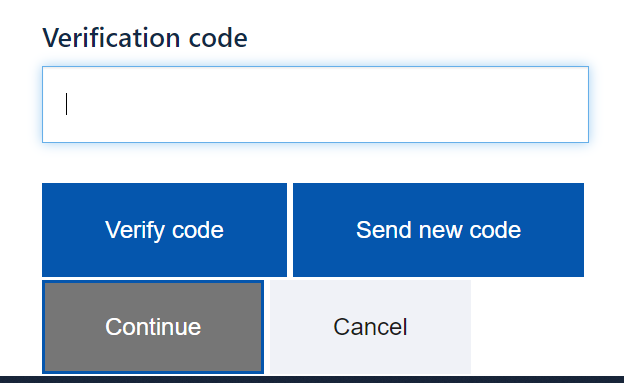The 2024-25 Staff Bursary is now open. The closing date for applications is 2nd May 2024 at 23:59 hrs. No late applications will be accepted.
For Bursary enquiries please contact staff.bursary@ggc.scot.nhs.uk
*Please note, we are experiencing a high volume of emails. Your email is very important to us and we will respond as soon as it is possible.
FAQs
Should I discuss my application with my manager?
Yes you must do this. There are several reasons for doing so which are detailed below:
- Your application must have the support of your line manager – they need to complete
a separate form that will be emailed to them directly. If these details are not all completed/ they do not support it, then your application cannot be considered.
You must ensure that your Manager’s email address is entered correctly in your Application. - It is anticipated that the courses of study will be identified through the Personal Development Planning process.
- You may need support with Study Leave.
- The questions require you to outline the links between the learning and its application in practice and also its evaluation. As such you need to discuss these aspects with your manager in advance of making your application.
I have not been accepted on the course yet, should I still apply?
Yes – but you must inform us of progress.
I made a successful application last year and received 60%. Can I apply for the remaining 40% this year?
We cannot consider retrospective applications – all courses must commence between August 2024 and July 2025. You can only receive one award per element, module or identified year of a continuing programme, you can submit an application for subsequent modules or years though.
Can I apply for more than one course?
In order to ensure that as many people as possible can access funds, only one application per person will be accepted. Some courses are modular in design therefore an application for more than one module would be considered. You should check with the Bursary Administrator for specific guidance.
I’m planning to undertake a course over the next three years. Will I get ongoing support? Will I get the same amount each year?
- The Bursary Scheme is available on a year-to-year basis, depending on the availability of funds. If your course is over one year, there is no guarantee of continued financial support for the duration of the course of study and you should make provision for this.
- Continued support for any follow-up years will require a separate application. Subsequent applications should not just be a copy of the original or previous applications. Each application should reflect your developing knowledge and experience of the course of study and its relevance to the workplace.
Can I submit a joint application with work colleagues?
No – Bursary applications can only be submitted from individual members of staff and should reflect that person’s individual development needs.
I have a temporary contract – am I still eligible?
The principles outlined in Section 6 of the Information Pack would still apply. You should contact the Bursary Administrator for a more detailed discussion of the nature of the temporary contract.
I might be applying for a post with another NHS Board. Can I still apply for a Bursary?
You can still submit a Bursary application but you must inform the Bursary Administrator if your job application is successful. An award will not be made if you leave NHS Greater Glasgow and Clyde before commencing the course. If monies have been paid to you or to the education provider they will be reclaimed.
Are there any strings attached?
You must confirm that you have explored the alternative funding sources and that these are either unavailable or do not cover the full course fees, prior to accepting any bursary offer made to you.
The applicant will be required to remain in employment with NHS Greater Glasgow and Clyde for two years following the date of the awarding of the qualification. However, when an employee leaves NHS Greater Glasgow and Clyde, but remains within the NHS then the benefit of shared learning across the wider organisation is acknowledged and monies will not be reclaimed.
The application form asks if I have sourced alternative funding – Do you know of any alternative sources of funding or supports with learning?
All applicants must have sought alternative funding prior to making their bursary application. Some of the main funding routes are:-
- Local Service Budgets
Applicants should speak to their line manager to discuss funding availability or contribution to funding.
- SAAS – Student Award Agency for Scotland
Please follow this link to find out about funding available for students studying part time.
- Individual Training Account – Skills Development Scotland
These Individual Training Accounts used to be called ILA’s and can offer up to £200 depending on eligibility.
- Profession-Specific Support
If you are a member of a professional body you may find that grants or scholarships are available.
- NHSGGC and University of West of Scotland Service Level Agreement
There is a Service Level Agreement (SLA) between NHSGGC and University of the West of Scotland to help nurses and midwives in NHS Greater Glasgow and Clyde access accredited programmes / modules at the University of the West of Scotland (UWS). Further information available through the following StaffNet link:
- Other Organisational Financial Supports
Different opportunities for assistance across the organisation may be available at various times of the year to support developments and practice – check with your line manager to discuss further.
- NES
NHS Education for Scotland offers a wide ranged education and training support for both clinical and non-clinical staff in Scotland. This can include some financial support. See the website for further details.
Other supports
- Adult Learners
HR Connect – Adult Learners The information in this linked page has been developed with the help of NHS Greater Glasgow & Clyde staff who have taken a step back into learning, looking to adapt to workplace changes and to apply new knowledge, skills and approaches in their job. It contains links to a range of supports for staff.
What if I don’t know the outcome of my application/ request for alternative funding?
You need to indicate this in the relevant section of the application form. If you are successful in receiving a Bursary Award, you will be asked to confirm that you have sought and either not been successful in securing alternative funding or that the level of funding does not cover all the course fees.
When will I know if my application has been successful?
All staff and their line manager will be contacted by email to advise of the outcome of their application. Due to the nature of the disbursement process, outcomes will be advised by end of July 2024.
Can I submit a previous application?
You must submit a new application each year personal to you. Your application should reflect the current year’s study, the associated learning outcomes and your current year PDP.
When completing my application, can I save and continue later?
No. The system does not support save and continue later. We advise that you type your responses into a Word document and paste your response into the application.
I work for the Local Authority in a Health & Social Care Partnership. Can I apply for the NHSGGC Bursary?
No. As the Bursary is funded by NHSGGC Endowments Funds, the Bursary can only support Staff employed directly by NHSGGC. You must have an NHSGGC pay number starting with either G or C.
Application Pack
Please read the information pack fully before completing your application –
To apply, please click on the link to the Online Application Form.
We can only accept an application form submitted via the new online process. Please do not print out, scan and send or convert to PDF. If you require help with the application, or require the application in another format, please contact staff.bursary@ggc.scot.nhs.uk or LE Support 0141 278 2700 (option 3).
It would be preferred that you use your NHSGGC email, however personal email address may be used. There has been previous issues with some external email providers. Your Line Managers NHSGGC email must be used.
For general Bursary queries, please contact staff.bursary@ggc.scot.nhs.uk or LE Support 0141 278 2700 (option 3).
The closing date for applications is 23:59hrs on Thursday 2nd May 2024. No late applications will be accepted.
Guide to the Bursary Application Form
The Bursary Scheme is a competitive process and funding decisions are based on the information within the application form. It is therefore essential that staff consider carefully the content of their application and discuss it fully with their line manager to secure their support prior to submitting the application form. All applications are considered and scored by a number of reviewers, independently of each other and referred to a disbursement committee as appropriate. Whether or not a Bursary award is made and the amount of money a successful applicant receives depends on the criteria being met and overall score.
Bursary Online Application Form Guide
The Staff Bursary Scheme is a competitive process and a large number of applications are received each year. It is therefore essential that you read the Information Pack before applying and ensure that you comply with all aspects of the Application Checklist before submitting your application.
Guide to the Application Questions
Each question is scored separately (with the exception of questions 1 and 6 which are scored together) and the information below gives guidance on how to approach the questions.
The Bursary Scheme is a competitive process and funding decisions are based on the information within the application form. Its therefore essential that you:-
- Discuss your application fully with your manager prior to completing it,
- Reflect on how the learning can relate to your job role/future development. It’s about the difference it will make.
- Ensure that you have answered all of the questions.
- Answer all parts of the question fully – this is not about writing more for each question, but ensuring that you respond specifically to what is being asked.
The following notes provide guidance as to the expected responses. Actual responses should reflect your experiences, expectations and hopes in relation to the course of study. These should be illustrated with recent examples.
Why have you chose this particular course of study? Please provide professional as well as personal reasons.
Responses will generally focus on the purpose and importance of the course of study and the consequent development of knowledge and skills. This may also include a brief comment on the potential impact on patients, colleagues or team. This will be the focus for your response to Questions 3 and 4.
Responses could also include reference to building on previous learning experiences and the identification of personal learning styles and preferences.
Comments on personal interest in learning or commitment to the particular course of study or contribution to the fulfilment of personal and career aspirations would also be appropriate. Please note that question 6 provides the opportunity to offer more general comments on personal aims, expectations and motivation.
How does this course of study link to your most recent Development Review or Appraisal and your current PDP – Personal Development Plan (or your own objectives if no recent PDP)? Please provide specific examples, outlining why they are important.
It is expected that responses will:
- Offer reflections on most recent review or appraisal and PDP and why aspects are important.
- Identify specific KSF dimensions, key result areas, objectives, CPD outcomes and competencies as appropriate.
- Explain how the course will link to and support these.
How will you apply your learning to support appropriate NHSGG&C work objectives (e.g. local team/ department or corporate service objectives)?
Prior to answering this question, you need to discuss the application of your learning with your line manager.
Responses should detail not just how the learning will be applied but also what the local/service/organisational objectives are and how this learning will specifically support these.
Examples could include the application of e.g.:
- clinical skills
- management competencies
- communication skills
- research, training
- and the relationship to e.g.:
- local or corporate objectives/themes
- national guidelines (SIGN, QIS)
- professional policies, procedures or standards
What positive changes would patients/customers in NHSGG&C see as a result of you undertaking this learning? Please provide examples.
Responses should identify actual developments and changes (or proposed) changes to practice. These could include development or expansion of services, support for other team members, service users or patients, improved effectiveness and efficiency of a service. Again, discussion with your manager is key regarding this.
How will you evaluate the learning from the course of study (including evaluation of the course of study as well as evaluation of the impact on the service as appropriate)?
Evaluation of the course of study could include written assessments, supervised activities, group work, tutor feedback, personal reflection. Evaluation of the impact of learning on the service could include feedback from managers, colleagues, patients, formal audit, peer review, personal reflection.
*Please answer in relation to both the course of study and its impact on services
Please provide any additional information in support of your application.
Use this question to provide additional information or expand on responses in question 1.
E.g. career path, wider impact of the course of study (national or international), management support, potential further learning, personal challenge, financial incentive provided by the Bursary Scheme.
Guidance for Managers
The Staff Bursary Scheme is available to all directly employed staff who currently work within NHSGG&C – from any service area, discipline or grade. It’s just one of a range of resources to support the development of staff and their ongoing learning.
I’ve just heard about this – what next?
The Bursary Scheme is generally available in the spring of each year, if funding is secured. Make sure that staff know about this opportunity – discuss it at team meetings and with members of your team – promote it as another route to support their individual development in line with service objectives.
A member of staff is interested in submitting an application – what should I do?
When the scheme is open, it’s essential that you discuss their application with them. The application must be supported by staff’s line manager for it to be considered. Key things to discuss include:
- How does it link to their PDP/Learning needs?
- What outcomes are they hoping to achieve?
- How could they apply the learning within their work and how does this link to work objectives (at team/service/organisational level)?
- How would the learning and impact of it be evaluated?
These are all areas covered in the application form – your support in discussing these can greatly assist in taking their application forward as an integral part of the PDP and Review process.
Staff must also explore all alternative funding sources prior to applying. Any awards made are on the condition that staff have done so and that alternative funding is either not available or does not cover the full course fees. After your member of staff has submitted an application, you will receive an auto-generated email with links to an online form to demonstrate your support. If you do not complete this form, the application will be withdrawn and the member of staff notified.
What alternative sources of funding are there?
There are a range of potential funding sources – see the ‘Other Resources and Support’ page for further details.
How will we know if the application has been successful?
All staff who submit an application will be contacted by the Bursary Administrator to confirm receipt of their application. If they don’t receive confirmation within 24 hours of submitting it, they should contact the Bursary Administrator direct. All staff will then be contacted by email to advise of the outcome of their application, and the manager will be copied into the email.
If Bursary Funding is awarded, does it cover every aspect of a course?
It only covers course fees – any additional costs such as travel, books and examination or accreditation fees are not included.
Applications must come from individual members of staff, reflecting their own development needs. If the course of study it essential to service development, then alternative funding must be sought.
If a member of staff’s application is successful, will the funding cover the cost of all the course fees?
If a Bursary Award is made, it is on the condition that the member of staff has first explored/applied to all alternative funding sources and that these have either been unsuccessful or if secured, they do not cover the full cost of the course fees.
The amount of funding awarded depends on the score given to the application, the number of applications received and overall level of funding available. The total funding available to an individual is capped. As such, any Award made, may not cover the full course fees. The Bursary Scheme is also available on a year by year basis subject to the availability of funding. As such, if a course lasts more than one year, there is no guarantee of continued financial support and employees are advised to make provisions for this when applying.
What other supports do we need to think about?
This will vary depending on the nature of the course – e.g. how long is it, is it during the member of staffs normal working hours etc., how can this be supported/ accommodated. Any study leave will be at the managers’ discretion, however managers must not discriminate between full and part time staff.
It is also important to regularly discuss progress and the application of learning – just as you would with any other learning or training opportunity, as part of the PDP process. An annual evaluation of the Scheme will take place in the autumn. This will focus on applicants’ progress with study and future study plans as well as the impact on personal, clinical and organisational objectives. In order to gather the relevant data applicants and managers will be contacted annually to participate in a survey.
Other Resources and Support
There are a range of resources and support open to staff both within and out with NHSGGC – some of these are outlined below:-
Local Service Budgets
- Applicants should speak to their line manager to discuss funding availability or contribution to funding.
SAAS – Student Award Agency for Scotland
Individual Training Account – Skills Development Scotland
- These used to be called ILA’s and can offer up to £200 depending on eligibility. Individual Training Account
Profession-Specific Support
If you are a member of a professional body you may find that grants or scholarships are available.
NHSGGC and University of West of Scotland Service Level Agreement
There is a Service Level Agreement (SLA) between NHSGGC and University of the West of Scotland to help nurses and midwives in NHS Greater Glasgow and Clyde access accredited programmes / modules at the University of the West of Scotland (UWS). Further information can be found on the Specialist Nursing Pages on StaffNet.
Other Organisational Financial Supports
Different opportunities for assistance across the organisation may be available at various times of the year to support developments and practice – check with your line manager to discuss further.
NES (NHS Education for Scotland)
NHS Education for Scotland | NES offer a wide ranged education and training support for both clinical and non-clinical staff in Scotland. This can include some financial support. See the website for further details.
Other support
Adult Learners
Adult Learners – NHSGGC The information in this linked page has been developed with the help of NHS Greater Glasgow & Clyde staff who have taken a step back into learning, looking to adapt to workplace changes and to apply new knowledge, skills and approaches in their job. It contains links to a range of supports for staff.
Other Learning & Development Information can be found as follows:-
Accepting Your Award
Accepting Your Award – Confirmation of Acceptance 2023-2024
Congratulations on your Bursary Award. Please follow the process below to ensure that your Provider is paid promptly.
1. You should receive an email from the Staff Bursary Team advising you of your award.
2. When you have secured a place on your chosen course, and have a starting date, please fill out the Confirmation of Acceptance form on this page.
3. To complete the Confirmation of Acceptance, you must ensure that each section is fully complete. Please ensure that you include your Providers email and full postal address.
4. When you have completed your Confirmation of Acceptance, please email this back to staff.bursary@ggc.scot.nhs.uk remembering to include your proof of course fees for the Bursary year. This can be an email from your Provider, a screenshot from your Provider’s website etc..
Please click on this link to access the Confirmation of Acceptance Form (COA).
If your Confirmation of Acceptance Form is incorrectly completed, is incomplete or if you have not attached your proof of course fees, the form will be returned and could result in either late or non-payment of your course fees.
In all cases, your Confirmation of Acceptance and Proof of Course Fees must be received by the Staff Bursary Team by 8th July 2024. Any invoices received after Friday 19th July 2024 could result in non-payment of your Staff Bursary.
If you have any questions about the process or want to discuss your individual circumstances, please email staff.bursary@ggc.scot.nhs.uk or phone the LE Support Line on 0141 278 2700 (option 3).


















